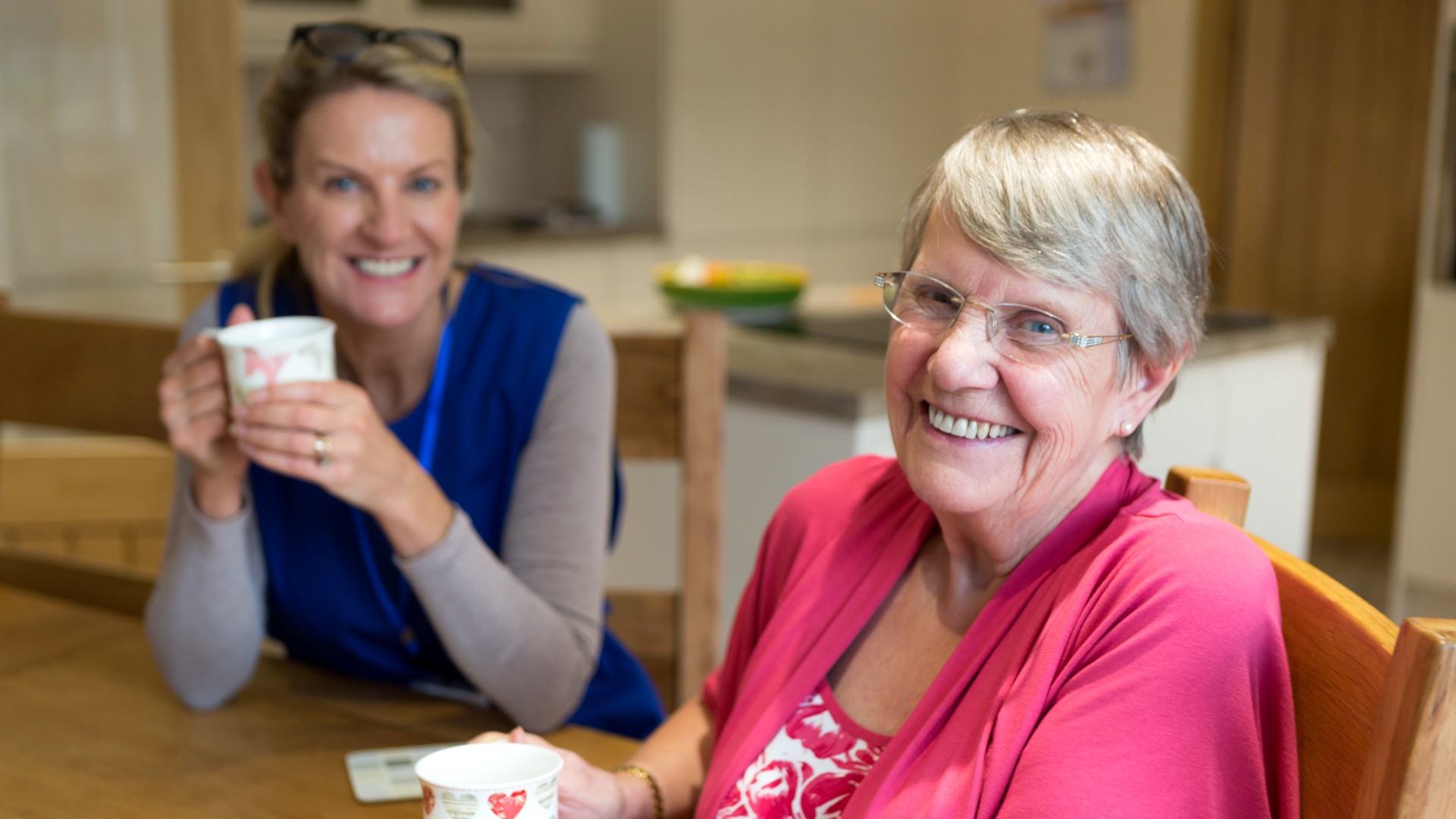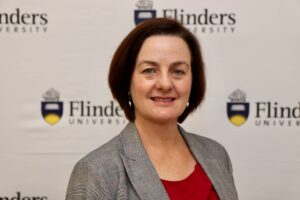
Change is happening within the Aged Care Sector and health care support systems for older Australians, but how do we ensure access to all the relevant services for all people in our society?
It’s an issue that Professor Stacey George has been busily addressing through a trio of projects conducted by Flinders’ Caring Futures Institute with the Adelaide Primary Health Network (Adelaide PHN) – work that underlines the spread and intensity of research being done by both organisations to improve quality care for older Australians.

One project – “Evaluation of Early Aging Initiatives in Primary Health Care” – asks how barriers for access to coordinated Healthy Ageing initiatives can be eradicated.
It aims to build GP capacity for supporting patients with chronic conditions, frailty, pre-frailty or early dementia, through early identification and providing evidence-based support for older people.
“This is targeting GP clinics to enhance their delivery of Healthy Ageing, especially through working with Allied Health to support a multidisciplinary approach,” says Professor George.
The project will train participating GPs in evidence-based approaches to Healthy Ageing and develop continuous improvement action plans for early intervention initiatives that improve quality-of-life outcomes for older people.
Another research project being led by Professor George – “Home modifications for ageing well: Social return on investment”, funded by the Office for Ageing Well – examines age-friendly home environments that will allow individuals to remain at home longer and maximise their participation in meaningful activities.
“We have evidence to support keeping older people in their own homes but access to home modifications is not equal for all Australians,” says Professor George. “There are long wait-times for funding through Commonwealth home care packages and barriers to accessing services for those with high levels of disability, unstable housing and Culturally and Linguistically Diverse (CALD) backgrounds.”
During 2021, 52,000 older people within the Adelaide PHN region accessed home supports, with recommended modifications ranging from minor (installing $200 rails) to complex $25,000 bathroom redesigns and included recommendations such as decluttering and improved lighting.
But despite the benefits of such home modifications, no rigorous evaluations exist about the costs and return on investment of home modifications.
“We have two aims – to evaluate the social return on investment of home modifications and to describe the impact of home modifications for diverse groups of older South Australians.”
A third project is examining the greater implementation of Telehealth to increase Primary Healthcare consultations in Residential Aged Care Homes.
“There are more than 190,000 older Australians living in residential aged care homes, and they do not consistently receive the care they require. This results in significantly more unplanned hospitalisations and Emergency Department visits compared to older people who are living in the community,” says Professor George.
“Telehealth offers the opportunity to increase timely, accessible and coordinated primary care for older people in residential aged care homes through virtual consultations.”
However, her research found that staff at residential aged care homes lacked confidence and skills in the use of Telehealth, which poses big challenges for the uptake of new technologies.
“Consultations with partners of this project describe Telehealth equipment stored in a cupboard,” says Professor George. “For the uptake of Telehealth to work more effectively, we must consider tailoring and adapting implementation processes that enable the technology to be embedded into routine practice.”
Through working with Adelaide PHN and three aged care organisations – ACH Group, Calvary Care and RSL Care – the researchers have found that sustained uptake of technology into practice needs to incorporate a co-design approach.
“Obtaining the perspectives of GPs, staff, residents and their families will help us understand the barriers and enablers that will maximise Telehealth use in the future.”
Covering this broad sweep of research projects in timely fashion requires the focus and dedication of a large team – and Professor George works with several PhD students, providing supervision that links this important research work to the Caring Future Institute’s Industry PhD program.
“This is why Caring Futures Institute actively recruits PhD students and finds partnerships that can fund industry placements,” says Professor George. “It forms a very valuable part of the intensive research work we are committed to do.”

